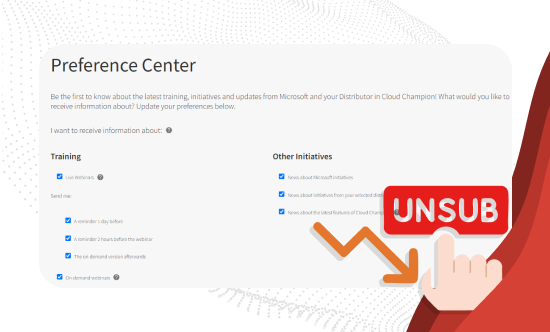Knowledge Is Power: Making ABM Work
Overview
Account Based Marketing (ABM) might seem like a recent trend, but it’s been around for a while and continues to grow in popularity. Mario Baroja, senior marketing consultant and partner at Kapturall, shares his knowledge.
For marketers, there’s always something ‘new and shiny’ to chase after; a trending platform, acronym, or tool that just *might* unlock some crucial KPI that’s vital to company growth and/or profitability. Don’t get me wrong – it’s very effective. But as someone in charge of developing new business, the clients I’ve seen succeed with this approach are those with a mature marketing and technology mindset, with focused efficiencies in both sales and marketing. While there’s definitely an element of ‘trendiness’ to ABM; many companies are still confused by the term. We saw something similar several years ago when ‘inbound marketing’ started in earnest. And while the idea that feeding content into a website will unlock leads is a persuasive one, it’s far from the daily reality. Prospects don’t just fall from a tree. You need to push them along the conversion funnel. You need to earn their trust early by being ready to give them value from the very beginning, and then you must continue matching expectations. But in a world where marketers have conflicting priorities, understanding what will really move the sales needle has to come first. And that’s where ABM has a critical role to play. Essentially, ABM involves a very specific subset of accounts. It’s a way of targeting fewer, more high-value companies – directly addressing their unique pain points in order to win their business. It means targeting a company, rather than an industry. It requires understanding who is who within each target account. One of the key things we need to understand extremely well are the client’s objectives and challenges. While – as many companies still do – it’s easy to presume that ‘adding technology’ is a viable way to iron out efficiencies, if it’s simply layered on top of faulty processes, the whole thing will fall down. That said, automation tools – like Marketo – can help ABM become successful. I’ve seen 2X revenue numbers on companies adopting ABM the right way. Leveraging data for one. Knowing who the key decision makers are at prospective companies can help accelerate both large and small business marketing efforts. Take startups for example – for whom scale and speed are vital. The VCs bankrolling them want to see fast results, which puts pressure on founders to close 5-10 big short term business deals. Marketing automation tools allow users to test concepts really quickly – using the data gleaned to determine decisions and next steps. In this way, truer insights shine through. There’s more certainty to act upon; and therefore – with the right marketing tech – more ways to boost engagement. Knowledge is power. Understanding what data, customers, or any other source or stakeholder have to say isn’t a short term marketing approach. ABM is an involved process, but is ultimately one that yields fewer big deals with higher success rates; rather than lots of smaller ones with varying degrees of success. For marketers looking for an approach that deep dives into their target market; giving them a precise picture of who they want to reach, and being able to operate in a scalable way, ABM is worth exploring. Automation tools help drive engagement in a focused, impactful way. And a specialised agency will help bring that technology together and fine-tune the process and methodology to help you reach your goals in a measurable way. 1. What is Account-Based Marketing (ABM)? It’s a marketing strategy that focuses on identifying and targeting key accounts with highly personalized content and campaigns. 2. Why is knowledge crucial in an ABM strategy? Because deeply understanding your target accounts allows for more effective interactions and increases conversions. 3. How does marketing automation help with ABM implementation? It enables quick testing of concepts and data-driven decisions, optimizing relationships with target customers. 4. Why is ABM not just a passing trend? It’s a proven approach that, when implemented correctly, can double revenue by focusing on high-value deals with high success rates. 5. How can companies start applying ABM effectively? By gathering and analyzing all available data to identify key decision-makers and optimize their marketing efforts. 6. What role do specialized agencies play in an ABM strategy? They help integrate the right technology and refine processes and methodologies to achieve measurable and scalable results.Account Based Marketing
ABM is not one of them
But how?
FAQ
SIGN UP FOR OUR NEWSLETTER
Mario Baroja
Partner & Senior Marketing Consultant at Kapturall
Over 20 years in Sales, Marketing and Consulting roles. Experience in internationalization, and worked for International companies before cofounding Kapturall. In 2013 he became the first Marketo Certified Expert among Spanish speaking countries. Is married and has 3 children, so surely he knows his stuff about large accounts. He lives in one.


